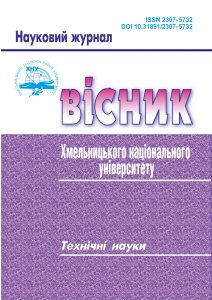COMPARATIVE ASSESSMENT OF EXPRESSION SYSTEMS IN THE PRODUCTION OF RECOMBINANT INSULIN
DOI:
https://doi.org/10.31891/2307-5732-2023-325-5-53-59Keywords:
diabetes, biotechnology, recombinant insulin, expression systems, producerAbstract
Lack of insulin in the body due to acquired or inherited factors leads to diabetes. The main objectives in the treatment of this pathology are maintaining a normal level of glycemia, preventing the occurrence and development of late complications, as well as preventing hypoglycemia. For many years, the lives of millions of people with diabetes have been saved by insulin, a vital medicine that the World Health Organization recommends that countries with a population exceeding 50 million people produce independently. From 1923 to the 80s of the last century, insulin was produced exclusively from animal raw materials - the pancreas of pigs and cattle, and only in 1982 was it possible for the first time to produce human insulin using the method of genetic modification of microorganisms. Currently, the share of genetically engineered human insulin throughout the world is steadily growing and in 2004 it accounted for more than 70% of the total production of the hormone. The features of the biotechnological method, which uses genetic engineering technology, are that the gene responsible for the synthesis of insulin is inserted into the DNA of the producer and the resulting genetically modified microorganisms synthesize proinsulin (inactive form), which, after enzymatic cleavage of the C-peptide, is converted into active (recombinant) insulin. The advantage of the method is the ease of scaling the process. Taking into account the importance of choosing an expression system already at the beginning of obtaining a recombinant protein, a comparative assessment of possible producers of a human recombinant insulin preparation was carried out, providing characteristics of the most promising of them as a biological agent. The selection of the expression medium was made based on an assessment of the efficiency, productivity and acceptability of the system for the synthesis of the target protein. The advantages of Escherichia coli (E. coli) as a producer have been established: high productivity and high level of expression, low cost, simplicity of cultivation conditions, rapid growth, the ability to change many parameters to optimize expression, absence of endotoxins. The research of the genetic apparatus and the high productivity of the E. coli bacterium make it economically feasible and realistically possible to genetically engineer strains that would engage in insulin biosynthesis. This will help improve yield and purity of the final product, reduce cycle times and enable scalable solutions based on existing equipment. Consequently, it will have a positive impact on improving the production technology of this drug and more fully providing it to diabetic patients.

